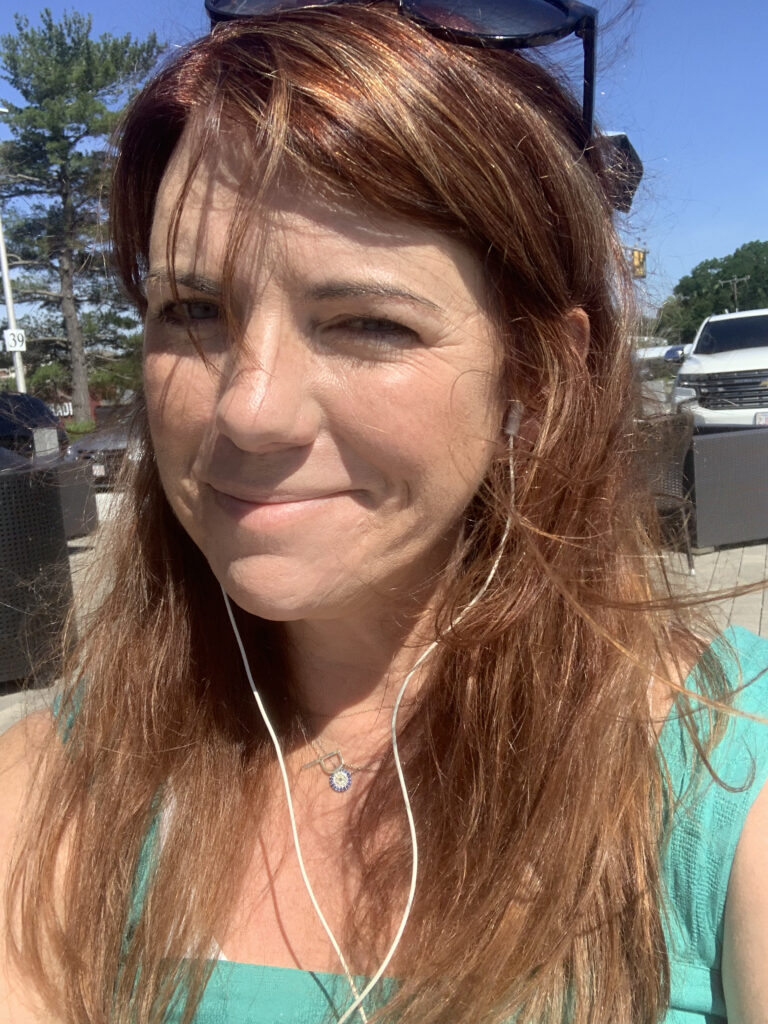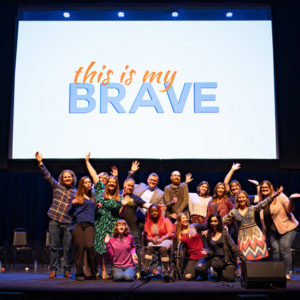Shattering Stigma: Celebrating World Bipolar Day
World Bipolar Day is an annual observance that takes place every year on March 30.
Happy World Bipolar Day! My name is Beth Starck, and I received my diagnosis of Bipolar Disorder in the Spring of 2016. I gave birth to my amazing son in the Summer of 2015. Seven weeks after his birth, I struggled silently with my mental health and chose to suffer silently. I would learn that I was suffering from postpartum, and that experience awoke my dormant Bipolar Disorder.
When I first received the diagnosis, I felt that I would never be able to move on from the label and would always be known as “Bipolar Beth.” The diagnosis felt as if it would be the stigma that followed me for the rest of my life, and I questioned if I could be the mother I always wanted to be.
When I first received the diagnosis, I was unraveling all the losses that had come with my experience of postpartum and bipolar. I had lost my marriage, home, and right to independently parent my son. I have turned to alcohol to attempt to quiet the noise in my mind telling me I was worthless and did not deserve the life I had at that time. It was one of the darkest times in my life.
Luckily, I was blessed to meet many individuals that would help me see that bipolar Disorder meant my brain worked differently than some other people’s and my life could be filled with happiness and joy. I met social workers who listened to me and saw me as an individual in pain, not what they read in a chart. I met my therapist by chance and a nurse practitioner who believed in my abilities to thrive in my life. I had a family that wanted me to succeed and committed friends that reminded me and were dedicated to supporting me to become the Beth I had been before my mental health and substance use challenges.
One night I was scrolling through Instagram and was amazed to find the organization, This Is My Brave. I was in awe as I watched videos of individuals owning their stories of struggle and sharing openly how they found their way to a wellness pathway. I remember crying and finally realizing I did have a chance in this world.
Bipolar Disorder will always be my superpower, and to me, it will always be why I have found myself in this unique position to help others.
I would love to say that my life became perfect upon this realization, but it did not. But I learned that I could accomplish anything I put my mind to with proper support, medication, and a belief in myself. In the last six or seven years, I have regained shared custody of my son and completed my bachelor’s degree graduating with high honors. I am one term away from completing my master’s in a social work program at Simmons University in Boston, Massachusetts. I grew up wanting to be a social worker but was always told I was “too sensitive.” I now see that my sensitivity would come to be my superpower, along with bipolar, and I could use my story to help empower others and work to break the stigma that surrounds mental health.
Speaking publicly about my diagnosis or sharing my story’s darker parts is difficult. On the other hand, it feels more important to share the more intricate details and work to normalize the conversation about mental health. My son is seven, and I often think about how I want him to grow up in a world where it is okay to ask for help and admit that struggles occur. I want to work to help the world be less stigmatized and more accepting of mental health. Everyone is somehow impacted by mental health, maybe you, a friend, or a family member. Mental health affects everyone; it should be a conversation, not a label.
Bipolar Disorder will always be my superpower, and to me, it will always be why I have found myself in this unique position to help others. Everyone should be celebrated for their differences and the unique gifts we bring to this world. In my darkest times, I was given the advantage of having hope, and I hope anyone reading this today finds some hope in my story. You are never alone, and whatever superpower you have is magical.
Beth Starck
Guest Blog

Resources
If you or someone you know needs help, reach out 24/7 to the 988 Suicide and Crisis Lifeline by dialing or texting 988 or using chat services at suicidepreventionlifeline.org to connect to a trained crisis counselor.
You can also get crisis text support via the Crisis Text Line by texting STORY to 741741.
For additional help, please visit our resource page.

